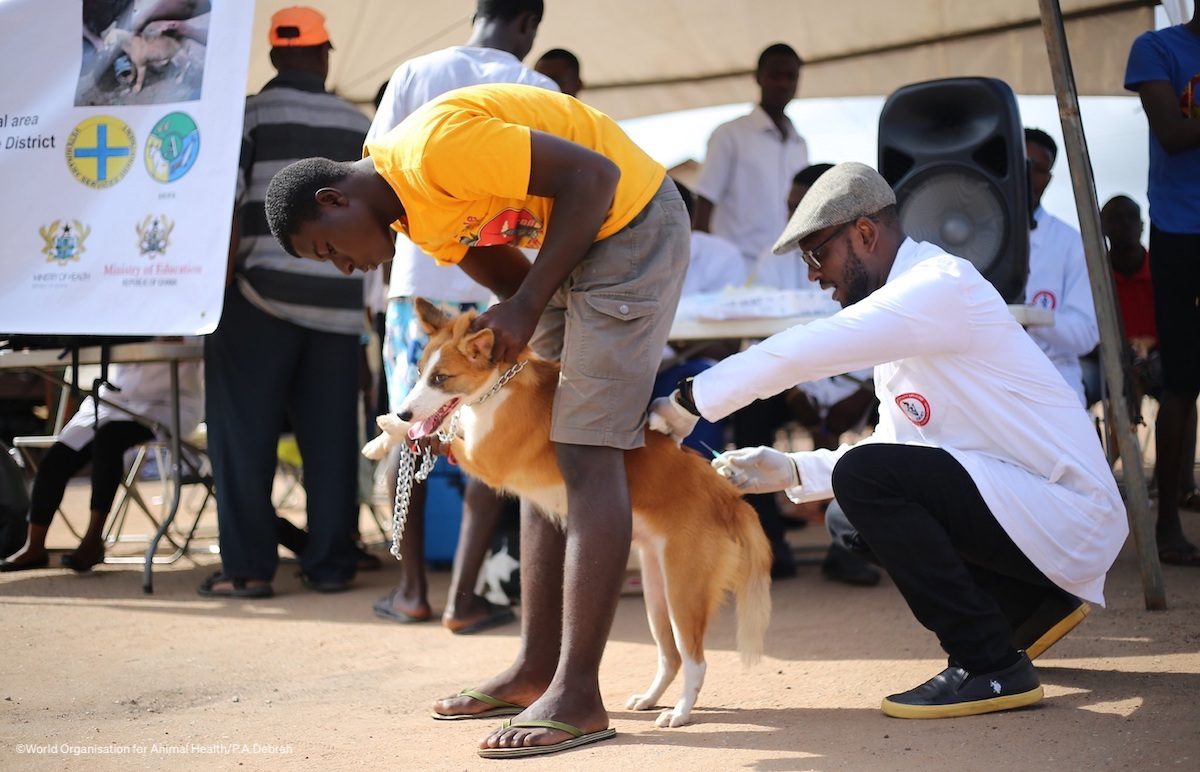- Empty cart.
- Continue Shopping
The Importance of Rabies Vaccination for Pets

Rabies is a deadly viral disease that affects mammals, including humans and pets. While rabies in pets is relatively rare in many developed countries due to vaccination programs, it remains a significant concern because of its severity and zoonotic nature (transmissible to humans).
Understanding Rabies
Rabies is caused by the rabies virus, which primarily spreads through the saliva of infected animals, typically through bites. The virus attacks the central nervous system, leading to severe neurological symptoms, including aggression, paralysis, and ultimately death. Rabies is nearly always fatal once clinical signs appear, making prevention through vaccination crucial.
The Importance of Rabies Vaccination for Pets
- Protection of Your Pet: Rabies vaccination is the most effective way to protect your pet from contracting the disease. This protection is especially critical if your pet goes outdoors, interacts with other animals, or is at risk of encountering wildlife.
- Public Health: Rabies is a zoonotic disease, meaning it can be transmitted from animals to humans. Rabies in pets poses a direct risk to human health, as people can be exposed to the virus through bites or scratches from infected animals.
- Legal Requirements: Many countries and states have legal requirements for rabies vaccination in pets. Failure to vaccinate your pet against rabies may result in fines or other legal consequences.
- Prevention of Spreading the Disease: Vaccinated pets are less likely to become infected and, therefore, less likely to spread the virus to other animals or humans. This helps control the spread of rabies in the community.
- Peace of Mind: Knowing that your pet is vaccinated against rabies provides peace of mind and reduces anxiety about potential exposure to the virus.
How Rabies Vaccination Works
Rabies vaccines stimulate the immune system to produce antibodies against the rabies virus. When a vaccinated pet is exposed to the virus, their immune system can quickly recognize and neutralize it. Here’s how the vaccination process typically works:
- Primary Vaccination: Puppies and kittens typically receive their first rabies vaccination at around 12-16 weeks of age. This initial vaccination is followed by a booster shot in about a year.
- Booster Shots: After the initial vaccination, pets receive booster shots at regular intervals, usually every one to three years, depending on local laws and the type of vaccine used.
- Annual Wellness Exams: Regular veterinary check-ups are essential for ensuring that your pet’s rabies vaccinations remain up-to-date.
Signs of Rabies in Pets
Recognizing the signs of rabies in pets is crucial for seeking immediate veterinary attention and taking precautions to prevent human exposure. Symptoms of rabies in animals may include:
- Behavioral changes (aggression or unusual shyness).
- Difficulty swallowing.
- Excessive drooling or foaming at the mouth.
- Paralysis or weakness.
- Seizures.
- Changes in vocalization (unusual vocalizations or silence).
If you suspect your pet may have rabies, contact your veterinarian immediately. Do not attempt to handle or approach the animal without professional guidance.
I Conclusion, Rabies vaccination for pets is a vital measure to protect not only the health of your beloved animals but also the well-being of your family and community. By ensuring that your pets are up-to-date with their rabies vaccinations and by following local vaccination requirements, you contribute to the prevention and control of this deadly disease. Regular veterinary care, responsible pet ownership, and vaccination compliance are essential steps in safeguarding both animal and human health.








